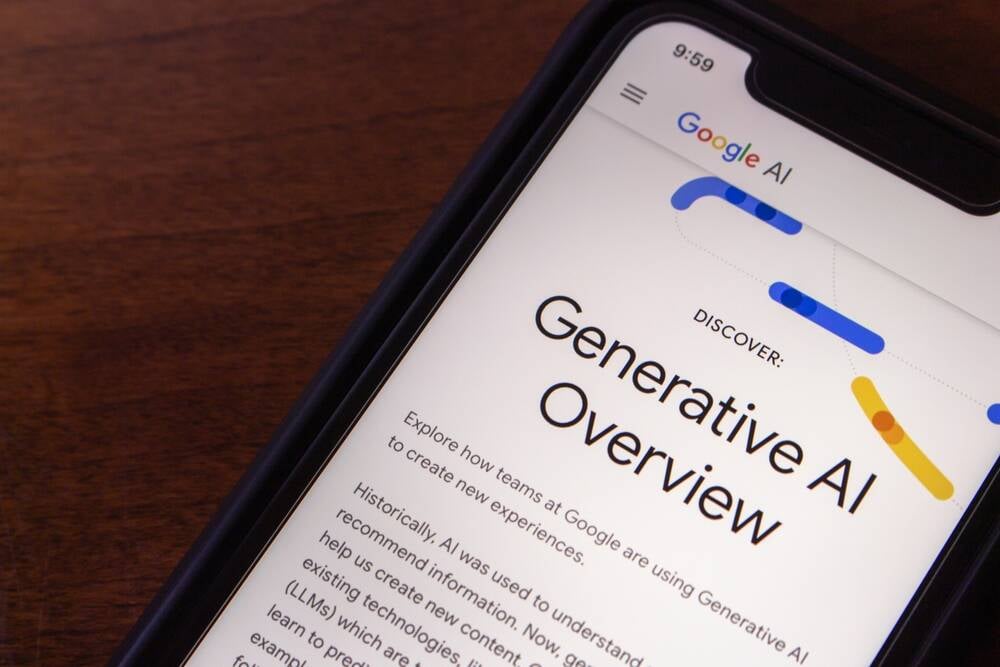Rephrasing online content benefits the search company, but is less favorable for publishers.
ai-pocalypseAccording to the Pew Research Center, Google Search users are less inclined to click on search result links when those pages feature AI Overviews.
And the inclusion of AI Overviews—concise summaries generated by AI models trained on online content—on search result pages increases the chances that web users will conclude their browsing session.
The results add more support to previous findings indicating that Google’s application of AI to summarize website content is causing those sites to lose visitors and associated advertising income.
A non-profit organization, the Pew Research Center, released a report on Tuesday that utilized information from 900 American adults who consented to provide their online browsing details to scientists.
Out of these, 58 percent performed at least one search in March 2025 that displayed an AI-generated answer response from Google, referred to as an AI Overview. Google started implementing AI Overviews consistently in May 2024.
When scientists analyzed the data from survey participants, they discovered that the inclusion of an AI Summary on a search results page reduced the likelihood of users clicking on search links by almost half, when compared to pages that did not feature an AI Summary.
Users who came across an AI summary clicked on a regular search result link in 8 percent of all visits,” stated Athena Chapekis, a data science analyst at the Pew Research Center, in the online post. “Those who didn’t see an AI summary clicked on a search result almost twice as frequently (15 percent of visits).
Google provides links to source material through AI Overviews, yet users are even less inclined to click on these links – only one percent did so.
In an effort to further lower that percentage, Google has recently incorporated backlinks into its search results through AI Overviews, along with the link anchors that direct users to original websites.
If AI Overviews show up on search result pages—approximately 1 out of every 5 searches—Google users are more inclined to finish their browsing session, as per the Pew research. The rate of session endings was 26 percent when an AI Overview was displayed, versus 16 percent when the page only had standard search results.
This marks a significant shift from October 2024, when AI Overviews had no noticeable effect on search referral traffic.
Worries that Google is making money off of publisher content without providing significant web traffic have led to a renewed look at the search-based advertising model that has mainly driven the online economy. Online publications clearly have their own interests in mind, as seen in headlines such as “Google Is Suffocating the Web,” “Artificial Intelligence is Destroying the Web. Is There a Way to Save It?” or our own perspective on the issue, “The AIpocalypse Has Arrived for Websites as Search Referrals Drop.”
It remains uncertain if a workable alternative business model will develop, but trials have already started. Earlier this month, Cloudflare suggested establishing toll-based infrastructure for AI crawlers to assist publishers.
In its view, the Chocolate Factory asserts that AI Overviews assist users in discovering a broader range of content across the internet.
In developer documentation, Google states, “AI Overviews assist individuals in quickly grasping the core of a complex topic or question and serve as a starting point to access links for further information. These features are intended to appear on queries where they offer added value beyond what users might typically find through Search. With AI Overviews, users have been exploring a wider range of websites when seeking assistance with more intricate questions.”
Keep in mind that Google does not claim “more individuals” are moving away from Google to access this broader range of websites. The variety of sites could indicate that common search queries directed at popular websites are often addressed more regularly on Google.com. This is what the Pew research implies.
In March, the search industry reported that more than 1 billion individuals have utilized AI Overviews. Google did not promptly provide a response to our request for commentary on this report.
We observe that Google Search will exclude AI Overviews when you add “-ai” to the end of a search term or include “&udm=14” as a URL parameter in a search query. DuckDuckGo offers a specific URL to bypass AI results. It is reported that Bing’s option to turn off AI in search results is not functioning properly. ®
In a statement shared with The Register following the publication of this article, Google challenged the methodology and data presented in the Pew study. “Individuals are moving towards AI-driven experiences, and AI features within Search allow users to pose more questions, opening up new ways for people to engage with websites. This research employs an inadequate methodology and a biased sample that does not accurately reflect Search traffic. We regularly send billions of clicks to websites each day and have not noticed any major decreases in overall web traffic as claimed.”






